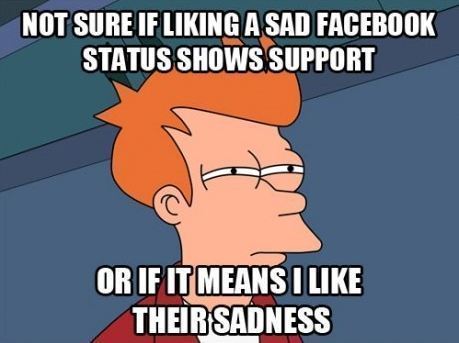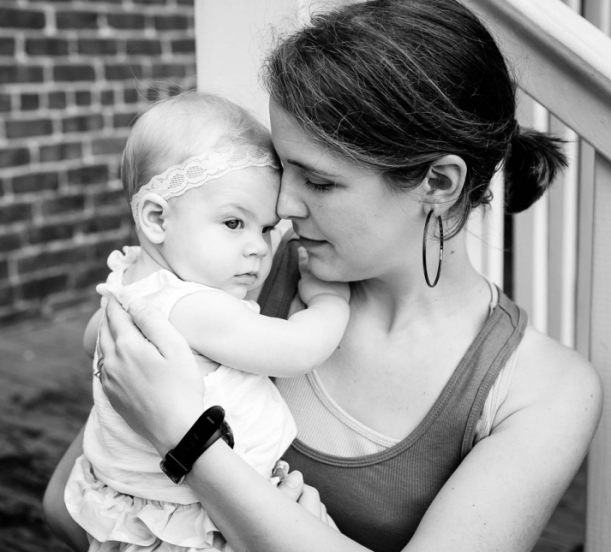Lets take a moment to reflect on your freshman year of college. What sort of images and feelings come to mind?


What about when you think of your first “real” job? Or that time you moved out of state for graduate school? Oh, and how do you feel when you think of your Facebook friends?
Notre Dame researchers Gerald Haeffel & Jennifer Hames recently conducted a very interesting study, which can be found in this article in Clinical Psychological Science. Their study examined something called “cognitive vulnerability,” depression, and how the two may interact during major life transitions.
What is Cognitive Vulnerability?
Haeffel and Hames use of cognitive vulnerability is in reference to a persons style of thinking about and interpreting life events. They explain that an increase in cognitive vulnerability would mean that you negatively interpret stressful life events, which in turn has a negative effect on your life (depression, decreased self-worth, anxiety, etc.).

Why are some more cognitively vulnerable than others?
The authors believe, based on prior research, that cognitive vulnerability is biopsychosocially developed. This means that one’s genetic predisposition mixes with their biology as well as the environment that they are brought up in. They specifically posit that early negative interpersonal experiences (parental abuse, bullying, poor interactions with teachers, social isolation, etc.) greatly increase the chance of developing cognitive vulnerability.
Cognitive vulnerability has long been assumed to be a stable characteristic throughout one’s life, however Haeffel and Hames decided to challenge this notion.
Ok, so what does this have to do with “catching” depression?
As with most concepts in psychological research, this concept is a bit more complex than simply “catching” depression. In this case, the researchers posit that being in close proximity to someone (i.e. your college freshman roommate) who exhibits a high level of cognitive vulnerability, may essentially “rub off” and may put you at higher risk for developing depressive symptoms later on. They explain that this occurs by way of a concept known as the contagion effect.
Did you start like this?
And end up like this?
Or, hopefully, you may still be bffs?
This study specifically examined 103 pairs of college freshman roommates (approx. 40 % male, 60 % female) to test their hypothesis. They determined that randomly choosing pairs of randomly paired college roommates would be an ideal “naturalistic” way to study the “contagiousness” of cognitive vulnerability.
They obtained their data through the use of questionnaires that measured stressful life events, cognitive vulnerability and depression at the one (baseline measurement), three , and six month marks. In terms of sub-types of cognitive vulnerability, Haeffel and Hames examined two that are typically connected with depression, which are ruminative (tendency to repetitively focus on one’s negative mood and the effects of such) and hopelessness (higher hopelessness tends to increase negative interpretations of life events and the causes/consequences of such).
What did they find?
Essentially, their data revealed significant numbers about the contagiousness of cognitive vulnerability at both the 3 & 6 month measurements.
They found an increase in cognitive vulnerability in roommates who possessed an initial (baseline) low-level of cognitive vulnerability after being paired with a roommate with higher cognitive vulnerability.
Their data further revealed that those with low cognitive vulnerability who were placed with another with low cognitive vulnerability actually had their overall cognitive vulnerability decrease!
It is important to note that they did NOT explicitly find depression to be contagious; they found potential factors (rumination/hopelessness) that make one more vulnerable to depression to be (possibly) contagious.
So what does this all mean?
First of all, correlation does not equal causation. This is one of the first studies looking at this specific phenomenon, so while the numbers are intriguing, we can’t say that they are indeed true…yet.
Their data is seems to say that if you are placed with someone who has a tendency to openly struggle with stress and transition, that you may be strongly influenced by such modeling and end up mirroring their coping style. They believe that if you continue using this coping style, you may have a greater tendency of developing symptoms of depression than someone with low cognitive vulnerability levels.
So, in a round about way, you could unknowingly be “catching” or learning certain ways of thinking from your roommate that may eventually develop into depressive symptoms.
Could this be happening in places other than college dorm rooms?
I found this part of their article super interesting. They surmise that these findings can potentially, if more research shows similar results, be generalized to other major life transitions like moving to a new state or starting a new job.
Another possible connection they draw from their data is the potential for one to “catch” similar tendencies from their online social network. There is pervasive use of Facebook & Twitter during major life transitions. If you are not an avid Facebook poster, I’m sure you can think of a few “friends” whose incessant negative quotes or ramblings can be found daily on your feed.
With the advent of infinite ways to personalize your news feed and friends list, you may take the initiative to filter out these negative influences. But, many do not, and these researchers believe that not doing so may be having a greater effect on your psyche than you think!
Granted, some people may in fact be crying out for help on Facebook and may actually really need support. So, this data is not to suggest that you should not support your friends or ignore those in need. We all know that sometimes very important information about one’s mental state can go unnoticed or unsupported online. However, that conversation is for an entirely different post.
This information is saying that you should be aware of the toll that constant negativity can have in your life and that you should consider adaptive ways (therapy, exercise, surrounding yourself with positive people) of coping with such.
What does this mean for therapists and their use of interventions?
This information highlights the importance of gathering more interpersonal information from clients. Spending more time gathering information about how those around your client cope with their own lives could potentially increase the efficacy of your interventions. If you know that your college-age client has a roommate who is constantly down in the dumps, you may be able to better tailor the strategies and educational information that you provide to your client.
———————————————————————————————————————————————————————————————————
I think this research is a great start to tapping into a concept that may be a large link in deconstructing depression. The concept of depression can be rather vague and quite detailed. If researchers can continue breaking it down into more tangible pieces, we as mental health professionals and mental health advocates can continue helping others to battle this common struggle. Awareness is key. Easily digestible information is also often a key for increasing such awareness and I think that this study did a great job of making this information easy to filter onto the public, universities, work places, and parents.
Does any of this ring true for you? Looking back, did your roommates negativity rub off on you? Did starting that new job with people who hated their jobs rub off on you? Do you think those online friends who don’t ever seem to say a positive thing have an effect on your mood?














